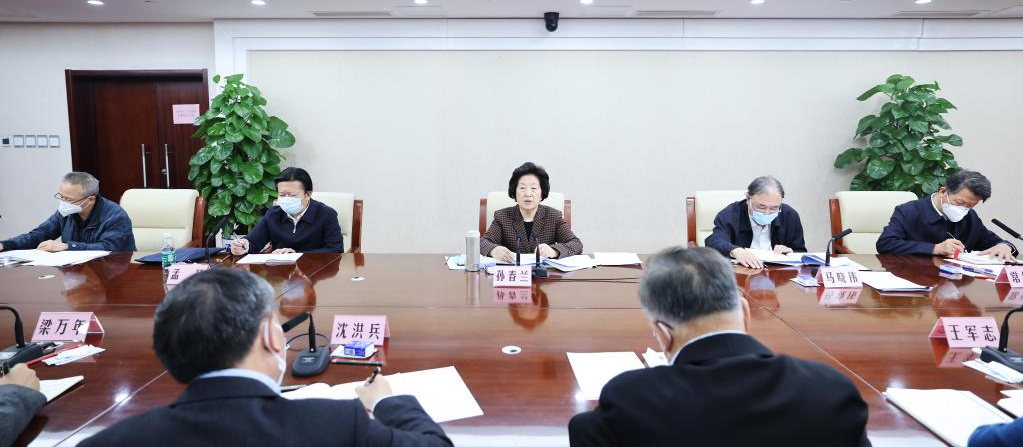The beginning of the end to COVID zero?
A steadily worsening economy and massive popular frustration at pandemic measures seem to have convinced some officials that COVID zero has to go. But it’s not clear what that means yet.

Beijing gave its strongest signal yet that it may be rethinking COVID zero, adding to the list of official and influential voices within China that have shifted their tone on the controversial pandemic policy.
Vice Premier and COVID-zero czar Sūn Chūnlán 孙春兰 said in a symposium at China’s National Health Commission (NHC) on Wednesday (readouts in English, Chinese):
The country is facing a new situation and new tasks in epidemic prevention and control as the pathogenicity of the Omicron virus weakens, more people are vaccinated and experience in containing the virus is accumulated.
Sun reiterated the message today (readout in Chinese), saying that “having effective medicine, especially traditional Chinese medicine, vaccination of more than 90% of the whole population; and declining pathogenicity of the Omicron virus, have created the condition for further optimizing COVID-19 responses.”
- “Dynamic COVID zero” was not mentioned in either of the two meeting readouts.
The statements from the COVID-zero chief are the latest indications over the past few days that new changes to the country’s long-held pandemic policy are brewing, as Beijing grapples with protests in major cities and growing pressure from around the globe.
- A few local governments have started allowing some close contacts of confirmed COVID cases to quarantine at home, Reuters reported, instead of in centralized government facilities.
- The NHC vowed (in Chinese) on Tuesday to increase vaccination rates among the elderly, while urging local governments to avoid excessive responses to COVID lockdowns.
State media has also softened its language this week, and most recently highlighted the not-so-perilous nature of Omicron: Today, state-run tabloid Global Times reported on domestic research that showed the lower mortality rates associated with the COVID variant.
- The study “reminds us not to panic about Omicron, and for ordinary people, the damage caused by coronavirus has markedly diminished compared to the original strain,” the editorial said.
- The Global Times and state-run media outlet Xinhua also published two separate articles today that highlighted the “optimize[d]” responses from easing restrictions in major cities like Beijing and Guangzhou.
China news, weekly.
Sign up for The China Project’s weekly newsletter, our free roundup of the most important China stories.
Other prominent voices, including Hú Xījìn 胡锡进, the former editor of the Global Times, wrote on Twitter that China was “speeding up to cast aside large-scale lockdowns,” citing the loosening restrictions.
- On Tuesday, the Beijing News, a newspaper controlled by the Communist Party branch of the the city, profiled people who said COVID was like a “bad cold.”
- Zhāng Bólǐ 张伯礼, a renowned physician who was one of the eight senior experts consulted at the NHC’s meeting on Wednesday, said in the Beijing Daily in mid-November that Omicron would be “difficult to completely eradicate.”
But does Beijing actually have a plan? Perhaps not: The New York Times notes that “it is unclear how far the party would be willing to go or if any such shift is being led by Xi Jinping, China’s leader, who has been the chief enforcer of the country’s ‘zero COVID’ policy.”






